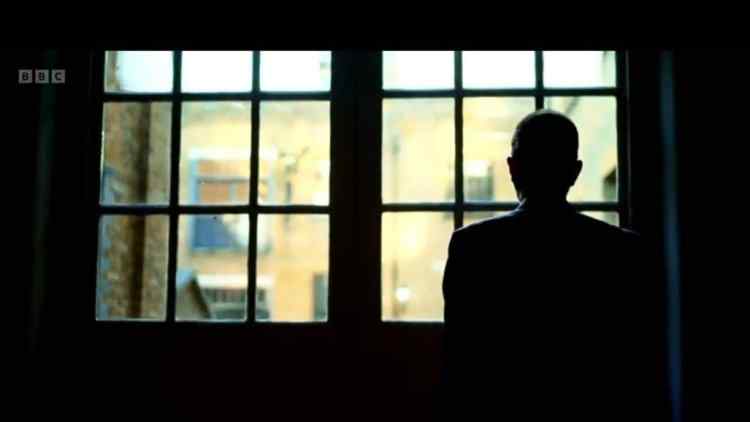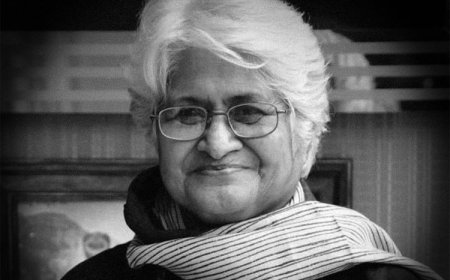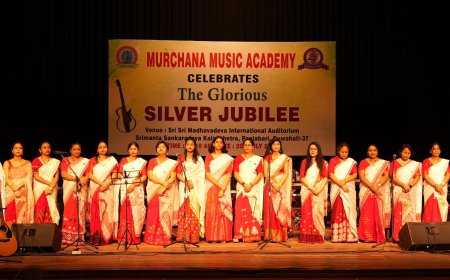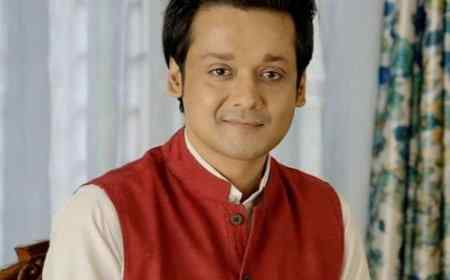INDIA – THE MODI QUESTION PARTS I AND II - THE BBC DOCUMENTARIES
Shoma A. Chatterji writes, "It is not as if independent documentary filmmakers in India have not been stopped from screening films that were scathingly critical of the government and its policies in the past. Examples are – Anand Patwardhan, Amar Kanwar, Sanjay Kak, Ajay Raina, and Rakesh Sharma. "

The word "documentary" poses many challenges. The use of the term ‘document’ in the word "documentary" is a contentious matter, though the other nomenclature, "non-fiction," is even more problematic. The moral insinuation of both of these has been plaguing the genre since its very inception. The former implies proof of authenticity, while the latter asserts the privilege of being factual. These implications, in turn, lead us to a kind of linearity – a fixed text, a representation of 'the' truth, which comes from the tendency of treating 'fact' or 'authenticity' as truth," writes activist-documentary filmmaker Madhusree Dutta.[i]
The BBC's two part, hour-long documentary (each) called India: The Modi Question breaks the unwritten norm of not attacking a top political leader directly through film. It launches a direct attack, which has created a snowball effect within the central administration. On the one hand, the establishment has triggered a ban on all screenings of Part I anywhere in India. On the other hand, a counter-attack has been launched by the former editor of The Hindu and journalist N. Ram, TMC MP Mahua Mitra, and advocate and civil rights activist Prashant Bhushan, who have jointly filed a petition in the Supreme Court.
Filed under Article 32 of the Constitution, the petition seeks to restrain the Central Government from censoring the BBC documentary and to quash all orders that directly or indirectly block online access to it. Also, they seek restoration of their tweets sharing the links to the documentary, which were taken down by Twitter following the Centre's order by terming the Centre's decision to block public access to BBC's documentary "India: The Modi Question" as "manifestly arbitrary" and "unconstitutional".
This writ petition is not called for because screening is rampant among individuals who have received the links to the two films from friends abroad, while students and activists across the country are gleefully inviting groups of students, activists, and anti-Modi groups to screenings of these films. This writer, for instance, got the links from two different sources. The first one came from an Indian source, so it disappeared following the ban. But the other link to both films sent by a NRI is functioning without issues.
It is not as if independent documentary filmmakers in India have not been stopped from screening films that were scathingly critical of the government and its policies in the past. Examples are – Anand Patwardhan, Amar Kanwar, Sanjay Kak, Ajay Raina, and Rakesh Sharma. Patwardhan’s last film, Reason, is one more reminder of our total loss of secularism and the scary move towards a Hindu right-dominated society, which glorifies and almost sanctifies Veer Savarkar who proved to be the main brain behind Mahatma Gandhi’s assassination. He wrote five mercy appeals to the British administrators and was released on the condition that he would "cooperate" with the British which he did! The letters are shown on screen. The one who betrayed his country is now being glorified as a patriotic hero with portraits installed in public spaces.
Rakesh Sharma’s Aftershocks: The Rough Guide to Democracy sheds light on the politics of post-earthquake "rehabilitation" in Julrai and Umarsar, two villages in Lakhpat. Though these villages were almost completely destroyed in the earthquake, no NGO, no UNO organization, and no earthquake relief agency bothered about them. Yet the villages turned into instant ‘gold’ for the Gujarat Mineral Development Corporation because of their lignite-rich soil! The GMDC was quick to pounce on them with false promises of ‘relocation’, ‘jobs’ and ‘rehabilitation’ to make financial capital out of a natural disaster. The film is a hitchhiker’s journey through the labyrinthine universe of democracy, as it exists at its lowest unit level—the Indian village.
Sanjay Kak’s Jashn-e-Azadi (2007), recorded the struggle for freedom in the Kashmir valley. In One Weapon (1997), he looked at those who took up the vote, not the gun, as their weapon. One Weapon was part of a series called India’s Quest produced by the Foundation for Universal Responsibility to commemorate 50 years of India’s independence. This marked Kak’s stepping into the territory of mass expressions of dissent, and his strategy in the process of filmmaking included walking along with the people he was filming.
The three major differences between this BBC film and the films discussed above are (a) This series is produced by the BBC, founded in 1922, which the Indian government has no control over, (b) The films launch a direct attack on the present Prime Minister of India, Narendra Damodar Modi from the time of the Godhra tragedy to his assuming the post of the PM of the country and (c) it is almost entirely one-sided with a very few countering voices trying to whitewash the accusations to give a clean chit to the most popular leader in the world’s largest democracy. Among them the most vocal is journalist-turned-politician Swapan Dasgupta. He was renominated as MP for the BJP on 1 June 2021.
Technically speaking, both parts of India-The Modi Question, leave much room for improvement. Much of the footage is borrowed from archival clippings of earlier footage of the riots, the processions, the shouts and slogans that are emphatically screaming the cause of Hindutva being the highest religion and those who do not follow this, will be beheaded. Though documentary cinema demands a focus on fact and investigation, even if this marginalises aesthetics, there should have been some space for aesthetics which is conspicuously absent. The narrative vacillates between and among scenes of arson, violence, killing and communal clashes and lots of talking heads, most of them talking against the Government.
The live shooting by the BBC staff of the killings of the minority post-Godhra, where the police chief admits that they could have saved the destruction to some extent, or, the fact that comes before the film begins that "more than 30 people of India declined to take part in the series because of fear for their safety," which is an arbitrary statement. How do the makers actually know that they declined because " of "fear for their safety"?
This writer is no fan of the BJP, the RSS, or even the PM, but one feels that the entire series could have been shot with greater restraint. The same critique of restraint is applicable to Modi himself, who, then the CM of Gujarat, responds to questions from the BBC journalist very rudely and with an arrogance that does not befit the CM of a state accused of holding the police back from interfering in the Hindu onslaught on Muslims in Muslim-dominated neighbourhoods for 72 hours, which led to the terribly violent deaths of around 2000 innocent lives, most of whom were Muslim. Imtiaz Pathan says, in a voice choked with tears, "Is it my fault that I am Muslim?" More than 100 Hindus died in the attack. Pathan says that ten members of his family were slaughtered.
Ehsan Jaffrey, former member of the 6th Lok Sabha for the Congress Party, was killed in the Gulbarg Society massacre in February 2002. When mobs attacked their society, swearing to kill, Jaffrey who was in his kitchen, came out and stood on the balcony and told the rioting crowds, "Leave the children and the women, take me." They cut off his head and slaughtered him to death. Jaffrey had made repeated calls to the powers-that- be, including Modi, pleading for help, but no one responded to his calls. The camera cuts to shots of smouldering bodies aflame in the foreground, as well as archival clips. In 2009, Imtiaz became a witness to how Jaffrey’s phone calls were not answered, but no evidence was found of phone calls having been made or received.
The film goes on to show how Harin Pandya, a member of the Council of Ministers in Modi-ruled Gujarat, who spoke about being present at a meeting where the directive was "the police will not intervene in any violence to what happened in Godhra." Pandya was found shot dead in his car some time later. Hartosh Singh Bal, investigative journalist, says, "The Supreme Court disputed the witness given by Pandey and said he was not present at the meeting." It was the slogan of "Hindu victimhood" that was harnessed by Modi before the elections.
Babu Bajrangi, perhaps of the RSS/BJP with a red tilak on his head, smilingly tells the camera that he has killed, chopped, and burned around 100 people (obviously Muslim), adding that he thoroughly enjoyed the experience and would kill more. Bajrangi was later jailed for murder, but he admitted that he was told not to worry as the judge trying the case would be changed. The judge was changed, and Bajrangi, laughing from ear-to-ear, says, "The new judge did not even open the file and declared me ‘not guilty’" He later said that he said all that as the BBC forced him to talk that way.
Part II begins with the lynching and killing on the open streets of Alimuddin Ansari who was just a driver and his only "crime" was that he was Muslim. Modi, says the film, was promoting "muscular nationalism," which believed in "ethnic cleansing of the country by eliminating members of a particular minority"."
The film then arrives in Kashmir, where Article 377 was lifted from J&K, followed by scary shows of horror by protesting locals. 4000 people were detained and arrested, followed by severe beatings and torture by the armed forces. Loudspeakers were placed outside to scare off the local public, who could hear the screams and cries of the victims and the sounds of beatings and thrashings, so that the entire village could hear these and not protest any more. Michelle Bachelet, UN Commissioner for Human Rights, at a conference held in September 2019, said, "I am deeply concerned about Kashmir." "It is important for Modi to show Hindu voters in the rest of the country, even though the government denied the wave of killings in Kashmir and the chaos of fear."
The scene shifts to Assam, where the Modi government, with Modi as the PM, began to concentrate on the National Resident of Citizenship (NRC), which meant the "illegal immigration of non-Indian residents," mainly to deal with the migration of both Hindus and Muslims from Bangladesh". In this scenario, the camera catches up with Noor Hussain, a rickshawalla from Lowdoon in Assam who claims that they arrested him because they believed he was an illegal immigrant from Bangladesh though he produced his Aadhar Card. But they did not accept it and arrested him. His wife was also arrested though they showed their Voters Card. When they complained that they had two small children, the whole family was shunted off to a detention camp for eighteen months. Hussain went on claiming that he was born here and his father was also a natural resident of Assam but his cries fell on deaf ears.
Arundhati Roy known for her feelings against the ruling party, smiled and said, "It is manufacturing refugees of its own when these are not refugees but natural citizens." The intention was to drive Muslims out of India. Roy added that this was a gross violation of the basic tenets of the Indian Constitution.
The film crew moved to Delhi to the Jamia Milia Islamia University campus, where student activist Safura Zargar claims that 50 students were arrested. We are suddenly witnesses to a clipping of Modi welcoming the then-US President to Gujarat and then back to Delhi. Graphic scenes of violence flooded the screen and we are introduced to the mother of Faizan, 23, a tailor, who died in the violence and killing lasting for six days when 53 were killed, around 500 were injured and two-thirds were Muslim.
Amnesty International accused the police of violating basic human rights, but not a single policeman was charged with torture or killing. The charges made for the arrest of 3000 people, both Hindus and Muslims, were (a) violence, (b) criminal conspiracy, (c) murder, and (d) intent to murder, and they were lodged in Tihar Jail. Safura says that though she was pregnant, she was arrested but released after 74 days. The camera then shifts to her with her new born little one, and the film comes to a close with the shot that it began with, Aishani Jaffrey, a young journalist seated in a dark room with his head bowed, who insists that they are creating strategies about how Muslims should be eradicated.
Every film has a political agenda of its own, be it suggestive, subtle, blatant, or open, never mind whether it is fiction or documentary. The audience, too, watches a film with its own political beliefs and agendas that it brings along with it. So, the question is not whether the BBC series is good or bad, true or false, manufactured or original. It is rather, a question of whether it raises questions about what is happening, what has already happened, whether it is a violation of human rights or not, and whether it is convincing enough for some members of the audience to think over these questions and do something about it in their own way, individually or in groups.
In an era of globalisation where the world can be shrunk to fit into a television set, on a tablet, or even on a cell-phone, it is significant to look at this kind of series made by a foreign media agency as placed within a larger universe and from a different perspective. The independent documentary cinema is alive and flourishing with every passing moment. It refuses to be killed, injured, or damaged for stringency in funding, scarcity of exhibit space, distribution support, and so on. And certainly not the BBC, which is celebrating its centenary.
***
End Notes:
[i] Dutta, Madhusree: In Defence of Political Documentary, Infochange Film Forum, online magazine
About the author: Dr. Shoma A. Chatterji is an Indian film scholar and author based in Kolkata.
What's Your Reaction?

































































